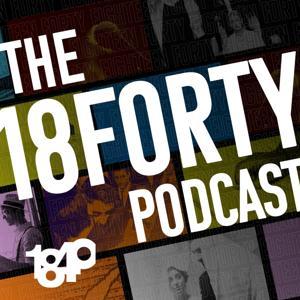The Omer is the 49-day time period between Pesach (Passover) and Shavuot. During this time, we climb up the emotional ladder by refining our character traits and regaining control of our emotions. We do this by focusing on the sefirot. A sefirah is an emotional attribute. For each of the 7 weeks between Passover and Shavuot, we focus on one sefirah each week.
Rebbetzin Sara-Tova Yaffe, of the CBD Chabad Sydney, in Sydney, Australia, takes us through each of the 7 sefirot, and explains them in detail.
Chesed--Kindness/love/benevolence
This is the most important aspect for creating a foundation in our relationships. Rebbetzin Sara-Tova talks about the different types of relationships that we have: intrapersonal (the relationship you have with yourself), interpersonal (your relationships with others), and your relationship with Hashem (G-d). Chesed encompasses how we give and receive love.
Question to ask yourself relating to Chesed: Do I take into consideration my partner's capacity to receive before I give?
Gevurah--Discipline/justice/boundaries
This is the channel through which we express our love. It gives us our direction and purpose. It makes our love focused and purposeful.
Question to ask yourself relating to Gevurah: Is my discipline restrained or is it excessive?
Tiferet--Compassion/harmony/beauty
This is the perfect blend of chesed and gevurah. Tiferet is the truth, and it rises above the ego. It brings clarity to relationships. Tiferet helps us balance our needs with another person's needs so that we are not over giving or over taking.
Question to ask yourself relating to Tiferet: Do I bond with the one you have compassion for, or do I remain apart?
Netzach--Victorious/enduring/ambitious
This is our drive, determination and tenacity to reach our goals. Netzach gives us the patience and the persistence to go after our dreams and desires without giving up. It brings security and commitment to relationships.
Question to ask yourself relating to Netzach: Does my determination compromise my compassion for others?
Hod--Humility/splendor
Hod gives Netzach direction. It gives us the awareness that Hashem is really the One who controls our success. As much effort as we put in while we persevere, it is Hashem who decides the outcome of our efforts. Hod brings awareness that all our gifts and blessings are from above, so we should not be boastful.
Question to ask yourself relating to Hod: Does my humility cause me to be anti-social, or does it express itself in empathy for others?
Yesod--Foundation/bonding
Yosod is the ultimate attribute of emotional connection. It is the fusion of individuals together; not two separate people, but rather two people coming together as one person, through the act of bonding. This brings a sense of belonging to a relationship.
Question to ask yourself relating to Yesod: Is my bonding conditional?
Malchut--Kingship/sovereignty/nobilityThis is a state of being; the way you show up in the world. Malchut is how you hold yourself and present yourself to the world. It's an expression of dignity.
Question to ask yourself relating to Malchut: Am I aware of my limitations and my strengths?
You can email me at: [email protected]
Vera Kessler (host of America's Top Rebbetzins) is a certified life coach. She specializes in transformational life coaching and accountability coaching. She is also a motivational speaker. Vera's mission is to help women get out of survival mode and start thriving. She works with women who are committed to stepping into their own self-worth and creating the life they want to live--one that is full of joy, empowerment, meaning, and purpose. To learn more, visit:https://innerlifecoachingwithvera.com/
























